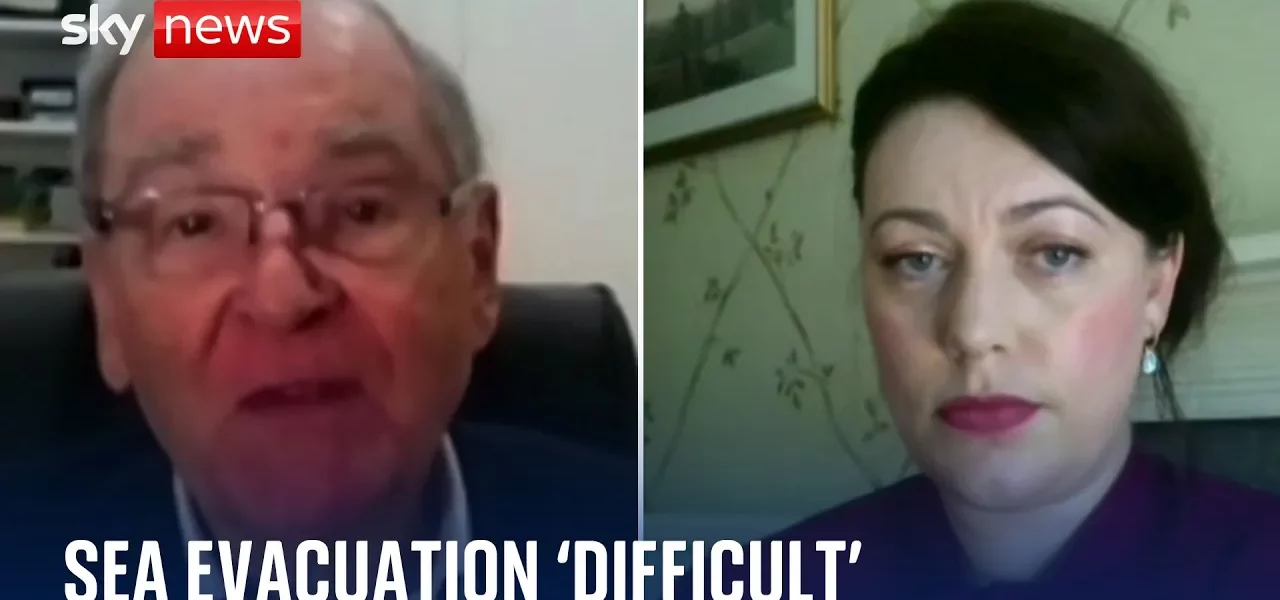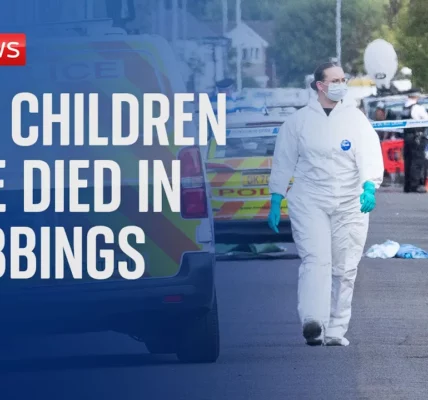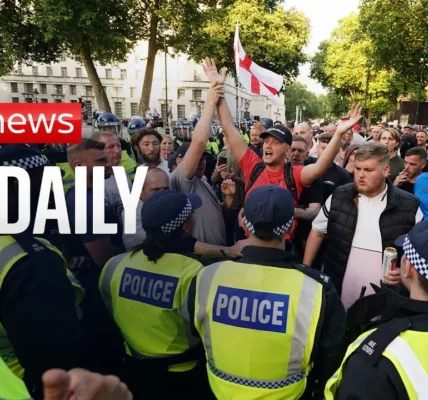Discussion on the UN’s Role in the Middle East Crisis

In this article, we delve into a critical conversation surrounding the complex geopolitical landscape of the Middle East, particularly focusing on the United Nations’ involvement and the insights from former officials regarding the ongoing tensions and the challenges of achieving a ceasefire.
Introduction
The geopolitical tensions in the Middle East have reached a boiling point, leading to increased scrutiny of the United Nations’ role in mediating conflicts. With Sakir St set to address the UN later tonight, the urgency for effective diplomacy has never been higher. Former British ambassador to the UN, Sir Jeremy Greenstock, and Conservative MP, Alysia Kerns, provide invaluable insights on the situation. This discussion highlights the disconnect between international diplomatic efforts and the realities on the ground, particularly concerning the ongoing conflict involving Hezbollah and Israel.
The Current State of Affairs
As world leaders gather in New York, there was a fleeting sense of optimism that a ceasefire might be within reach. However, the stark contrast between diplomatic rhetoric and ground realities paints a different picture. The following sections explore key aspects of the current situation.
Disconnect Between Diplomacy and Reality
According to Sir Jeremy Greenstock, the optimism expressed earlier was largely misguided. The core issue lies in the unwillingness of both Hezbollah and Israel to agree to a ceasefire without clear conditions. This has led to a significant disconnect, as the parties involved are seemingly not listening to the diplomatic overtures being made.
The Role of Hezbollah and the Gaza Conflict
Hezbollah’s ongoing military actions are closely tied to the situation in Gaza. Observers, including Greenstock, argue that a comprehensive military solution to eradicate Hezbollah is unlikely without inciting a broader conflict. The dynamics between the Israeli military strategy and Hezbollah’s responses are crucial to understanding the protracted nature of this conflict.
UK’s Position and Responsibilities
Alysia Kerns highlights the current geopolitical landscape, where the influence of the UK seems diminished compared to that of the US and France. The UK’s historical role in supporting Lebanon has waned, leading to a call for renewed focus on the humanitarian crisis in the region.
Evacuation of British Nationals
One pressing concern is the evacuation of British nationals currently in Lebanon. Kerns emphasizes the urgency of this task, as many remain unaware of the potential risks. The UK government must prioritize communication and action to ensure the safe evacuation of its citizens.
Preventing Escalation
Beyond evacuation, Kerns stresses the need to prevent further escalation of violence. The focus has shifted back to the Gaza conflict as military operations intensify, underscoring the interconnected nature of these regional conflicts.
The UN’s Powers and Limitations
When discussing the UN’s effectiveness, Greenstock notes that the organization lacks enforcement capabilities without the consensus of its member states. The absence of a Chapter 7 mandate means that UN actions often remain rhetorical without the backing of military enforcement.
Military Action vs. Diplomatic Solutions
The reliance on military solutions without a clear diplomatic exit strategy is concerning. Greenstock points out that this approach may prolong the conflict and exacerbate the humanitarian crisis in the region.
Hezbollah’s Influence in Lebanon
As the situation evolves, Hezbollah’s influence within Lebanon remains a critical variable. Kerns warns that a ground invasion could bolster Hezbollah’s support among the Lebanese population, complicating the already fragile political landscape.
Looking Ahead: International Responsibility
The discussion raises essential questions about global leadership in times of crisis. Both Greenstock and Kerns emphasize the need for responsible action from world leaders, particularly in terms of diplomatic engagement and humanitarian efforts.
Learning from Past Evacuations
Reflecting on previous evacuations, such as those from Afghanistan, Kerns expresses hope that lessons will be learned. The unique challenges posed by the current situation necessitate a careful and well-coordinated response to prevent missteps.
Conclusion
The conversation between Sir Jeremy Greenstock and Alysia Kerns highlights the multifaceted challenges facing the United Nations and the international community in addressing the Middle East crisis. As the situation develops, it is crucial for global leaders to prioritize diplomatic solutions and humanitarian support. Engaging in constructive dialogue and taking decisive action to protect civilians and prevent further conflict is essential. For more insights on international relations and geopolitical issues, check out our related articles on [International Diplomacy](#) and [Middle East Conflicts](#).
“`




